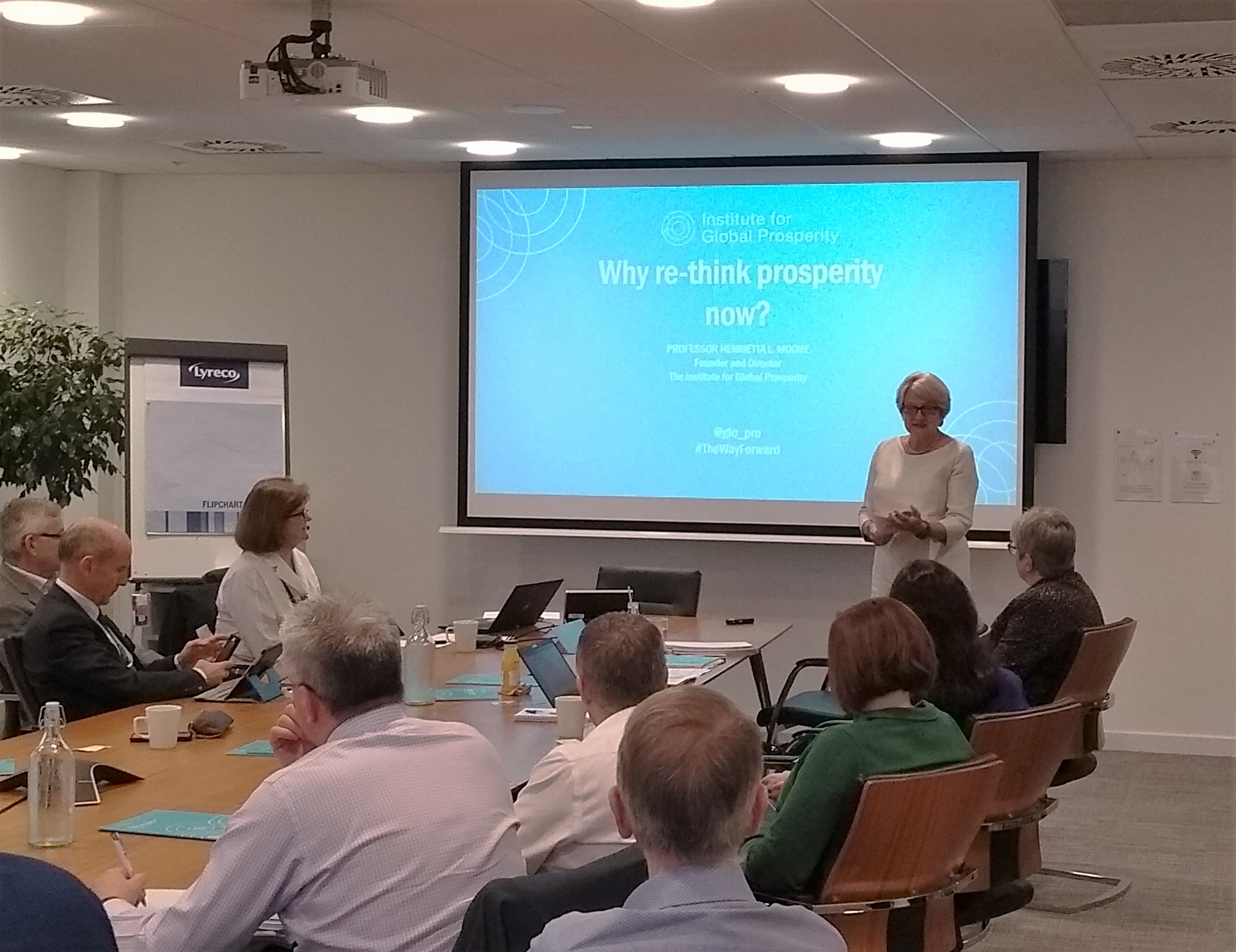Prosperity Index Public Services
Juan Manuel Moreno
On Tuesday 15 October, I was in Cardiff attending the event Re-thinking Prosperity for Wales: A multi-stakeholder dialogue about new approaches to delivering shared prosperity.
Co-hosted by the Institute for Global Prosperity (IGP) at University College of London and the Development Bank of Wales (DBW), the event attracted a wide range of representatives from the Welsh government, public, private, academic and charity sectors.
This was an opportunity to develop future communities of practice with partners in the region. It also provided a space to share IGP research on the Prosperity Index (PI) and the Universal Basic Services (UBS) projects.
I was there with IGP Founder and Director, Professor Henrietta L. Moore, ProCol UK Research Leader, Dr Saffron Woodcraft, and Social Prosperity Network Co-Director, Mr Andrew Percy.
The event was a success and had a very positive reception, proceedings almost disrupted by the delicious Welsh cakes provided by the DBW.

Dr Victoria Winckler, Director of the Bevan Foundation, opened the first session giving an overview of the social, economic and political challenges and opportunities for prosperity in Wales. Prof Moore’s intervention examined the reasons for rethinking prosperity now and introduced IGP interdisciplinary and collaborative ways of working through community-led and evidence-based research. The second session had Dr Woodcraft and Mr Percy presenting on the PI and UBS projects.
There were stimulating interventions amongst the attendees. Some concerned with general economic challenges such as the lack of middle-size businesses in Wales or the limitations of progressive initiatives. Others revolved around the role of universities as anchor institutions and drivers for sustainable prosperity within communities. Yet, others were more specific on the methodology and adaptability of the PI to Welsh contexts, and the feasibility of pilot schemes for trialling UBS proposals.
Reflecting on the event, one of the issues discussed throughout the morning and still ruffling within my mind, concerned the lack of alternative voices within governance and decision-making contexts. Democratic deficit and exclusion not just in terms of ethnic diversity, gender or social class, but more in terms of age; how to bring in youth and adolescents to these discussions.
Wales, as many other ‘post-industrial’ places in the UK, has a historical narrative of politics happening to them. At the same time, much good work and progressive initiatives already exist in Wales. However, rethinking prosperity is more than just identifying local understandings and needs to inform public policy, or investing in local, place-based socio-economic development through inward procurement, important this is. It is also about examining how local ‘knowledges’ and alternative practices interrelate and shape individual’s lived-experiences and their capacities and capabilities to prosper, where is the scope to act, and how to act.
This is why projects like PI and UBS, which seek to harness individual’s capacities and capabilities towards a sense of collective responsibility and endeavour, are so fundamental towards building better quality of life and sustainable prosperity.
In the coming months, IGP will be pursuing some of the connections made hoping to start collaborative work with colleagues in Wales.
Top image: Lisa Fotios
Fatemeh Sadeghi
30 May 2024 Feminists in the Global South have stepped out of the conventional territories of ‘women’s matters’ into more fund...